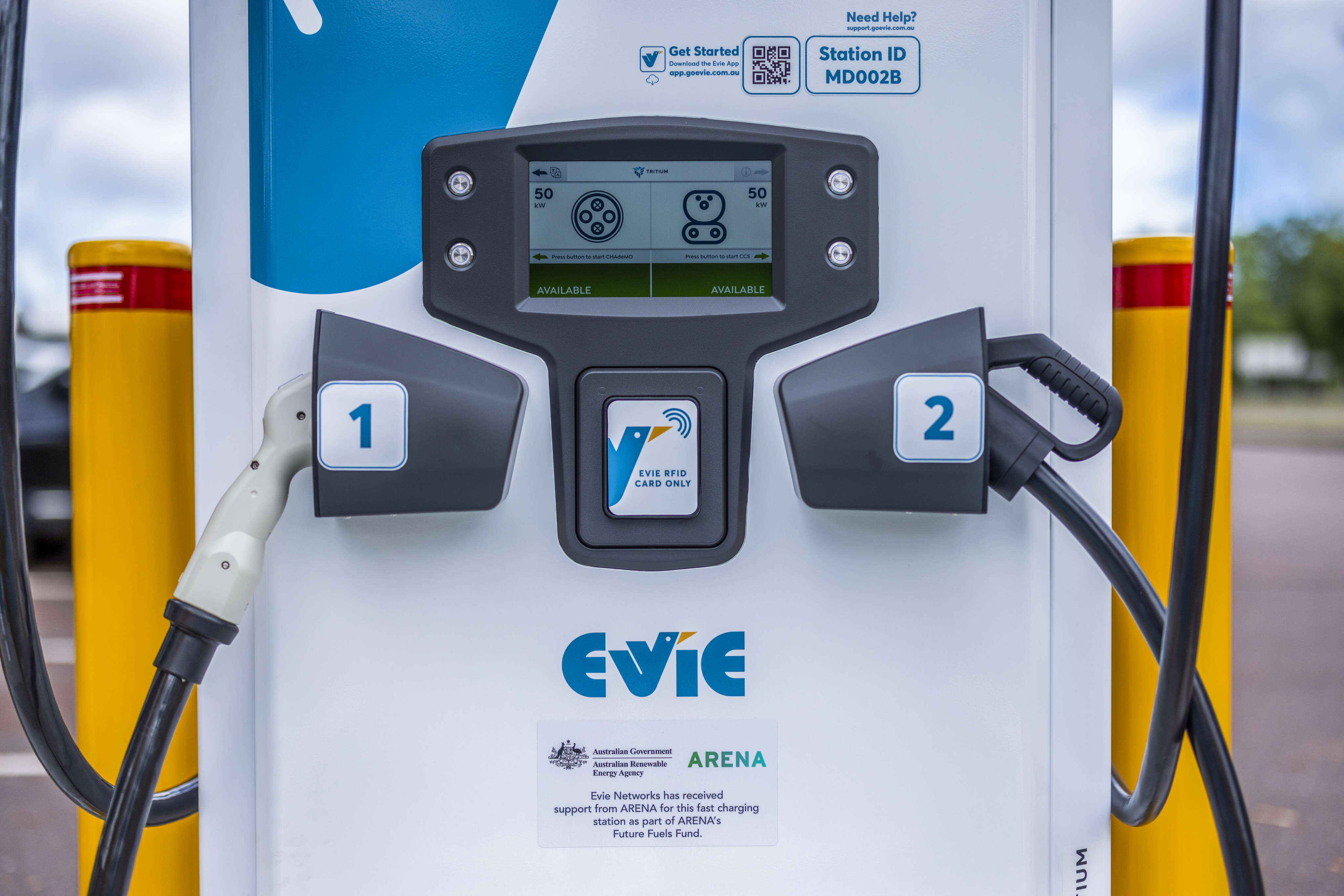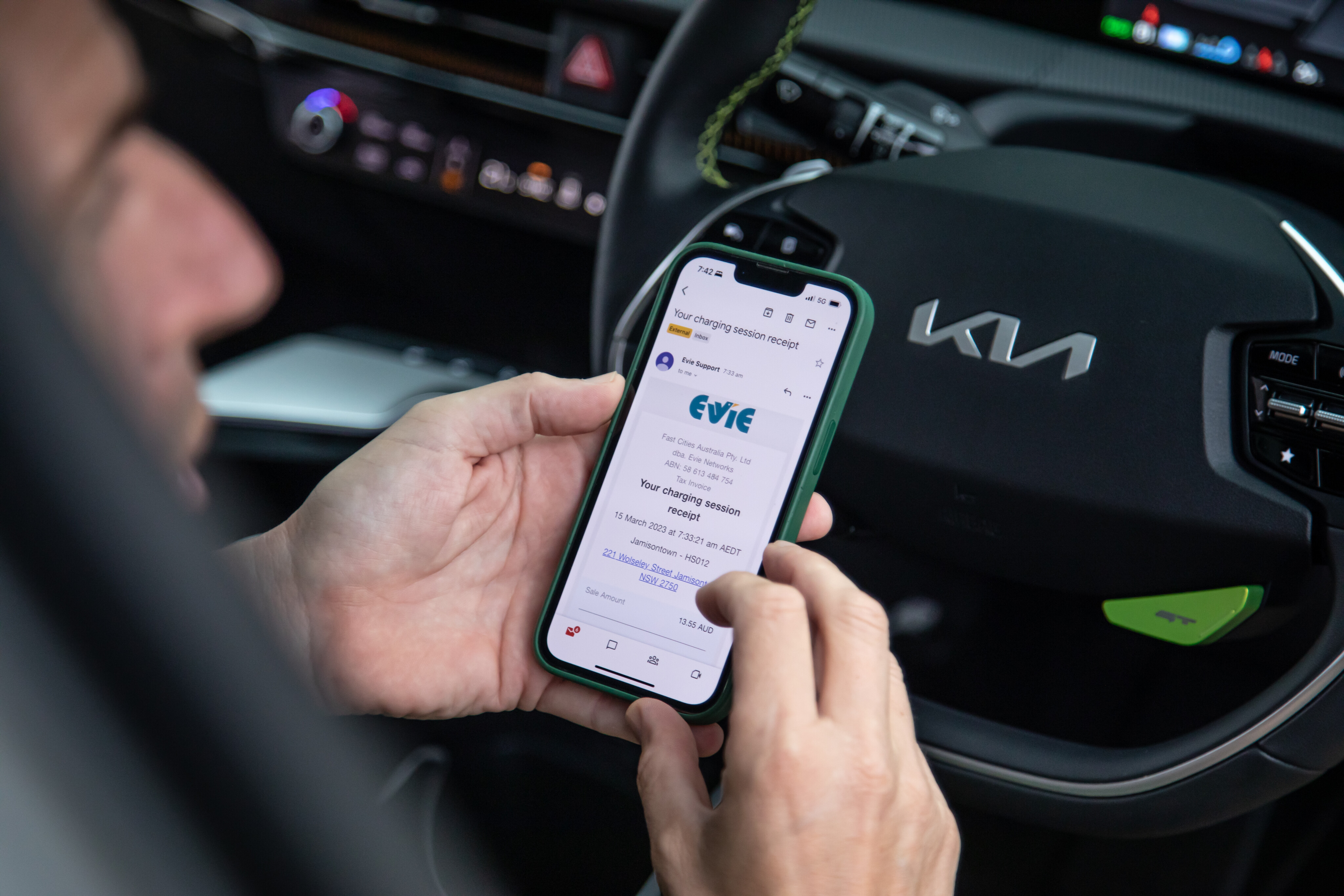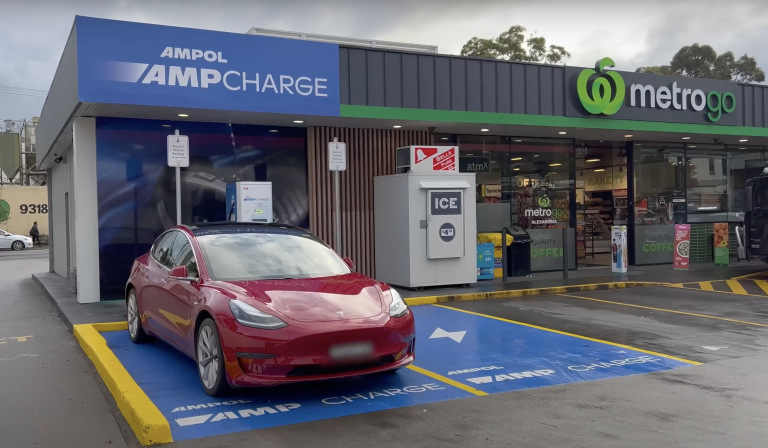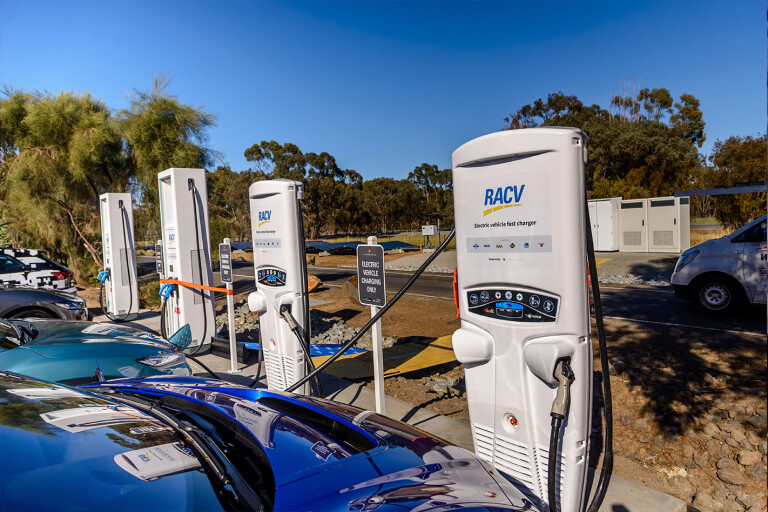
Evie Networks’ fast EV chargers will become pricier again next week, as electricity costs continue to rise.
Snapshot
- Evie Networks raise charging prices by up to 10 per cent
- First time 350kW chargers hit with increase, second time for 50kW this year
- Still cheaper than BP Pulse and Ampol AmpCharge
From Monday, July 10, Evie’s most common 50kW DC public fast charging stations will cost $0.50 per kilowatt-hour (previously $0.45 per kWh) – representing a 10 per cent increase.
Additionally, 350kW DC ultra-rapid charging stations will be priced at $0.65 per kWh (previously $0.60 per kWh) – representing a 7.7 per cent increase.
The increase comes just six months after the charging provider raised 50kW stations from the base $0.40 per kWh rate in February, which was also attributed to higher electricity market costs.
What does this mean for my wallet?
For example, a Tesla Model Y RWD owner who recharges its 57.5kWh usable battery from 10 to 80 per cent will need to pay about $2 more than before on Evie Networks.
The charging bill will total to around $20 on a 50kW fast charger or $26 on a 350kW ultra-rapid station.

However, it’s the first time Evie’s 800-volt class high-powered chargers have been subject to a price rise since the company’s debut in late 2019.
In an email to users, Evie Networks said the price increases were consequently a “direct result of the rising cost of energy” in order to continue investing in operating and expanding its network. It aims to triple its network reach this year.
The Australian Energy Regulator approved increased default electricity costs by up to 25 per cent nationwide, depending on the region on July 1.
Its direct EV charging network rival, Chargefox, hasn’t raised prices yet for its own 50kW and 350kW DC units, with fees still set at $0.45 and $0.60 per kWh respectively. Other non-Chargefox owned chargers, but facilitated through the company, have different set fees.
Despite the price rises, Evie Networks’ chargers are still more affordable than BP Pulse’s 75kW DC units at $0.55 per kWh and Ampol’s AmpCharge 150kW DC capable chargers costing $0.69 per kWh, as at the time of publication.
February 8, 2023: Evie and Ampol raise charging prices
Evie Networks and Ampol’s AmpCharge have increased EV charging rates by up to 13 per cent due to rising electricity costs.
Snapshot
- Evie Networks 50kW chargers now $0.45 per kWh
- AmpCharge 150kW charges now $0.69 per kWh
- Rising energy costs blamed for increases
From February 13, Evie’s most common 50kW DC public fast chargers will now cost $0.45 per kWh (up from $0.40 per kWh), representing an 11 per cent jump.
It’s the first time the company has applied a price increase since its launch in late 2019, as the second-largest EV charging network in Australia – which is seeking to install 200 additional stations this year.

Evie’s priciest 350kW DC ultra rapid chargers will remain the same rate at $0.60 per kWh.
Additionally, Ampol’s AmpCharge 150kW DC fast chargers are now priced at $0.69 per kWh (up from $0.60 per kWh), representing a 13 per cent hike.
“Ampol aims to offer great value, high quality products to our customers. In order to continue doing so, and after a review of wholesale energy costs, we’ve needed to revise the pricing structure to reflect market conditions and rising energy costs,” AmpCharge said in a statement posted on PlugShare.
Its price is now on par with Tesla’s 150kW and 250kW DC Superchargers, which are between $0.66 to $0.69 per kWh depending on the location – and costs similar to refuelling a conventional petrol or diesel car.
Last week, the American company opened up five Supercharging trial sites in regional New South Wales to charge any EV model.
However, there’s a catch: it’s even more expensive at $0.79 per kWh, unless you opt for a $9.99 per month subscription to obtain a discounted rate.
The state motoring club-owned Chargefox network is now the cheapest (and largest) EV charging provider in the country, costing $0.40 per kWh for most 50kW units and $0.60 per kWh for 350kW stations.

It also runs state government-backed and local council chargers, which may cost less as per Queensland's Electric Super Highway (QESH) which is only $0.30 per kWh, while all NRMA chargers are still free-of-charge for any EV owner (but will become a member-only perk in the future).
It’s worth noting that the most convenient and cost-effective way to charge an EV is at home overnight on off-peak electricity or when there’s free solar energy generation during the day, provided you can plug in to a standard home socket.
According to the Electric Vehicle Council, more than 100,000 EVs will be on Australian roads this year as demand continues to soar for models such as the Tesla Model 3, Model Y and BYD Atto 3.
More EV stories to help you choose the best car for your needs
🚘 EV news, reviews, advice & guides
- ❓ Short & sweet: Your EV questions answered
- ⚡ New EVs: Everything coming to Australia
- 🥇 Australia's EVs with the longest driving range
- ⚖️ Best-value EVs by driving range
- 💰 How much do EVs cost in Australia?
- 😰 How much more expensive are EVs?
- ⚖️ Number crunching: Is it time to switch to an EV?
- ♻ Should you buy a used EV?
- 🛡️ Are EVs more expensive to insure?
- 🆚 Costs compared: Charging an EV vs fueling a car
- 📖 EV charging guide
- 🚧 Are there enough EV chargers in Oz?
- 👨🔧 EV servicing explained
- 🔋 EV battery types explained
- 🪫 When do EV batteries need replacing?
- 🆚 Hydrogen v EVs: What's best for Oz?
- 🌏 How sustainable are EVs, really?
COMMENTS